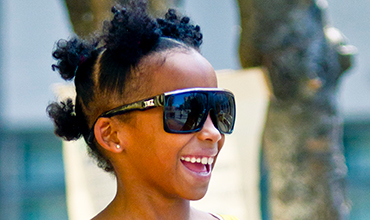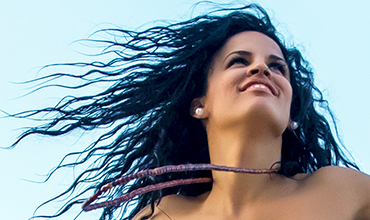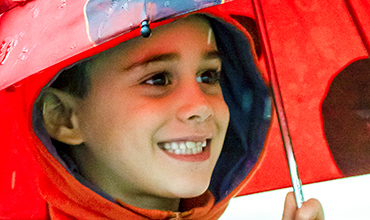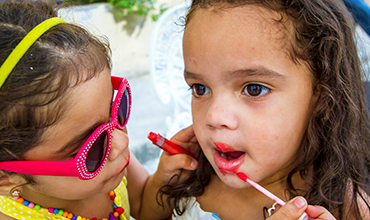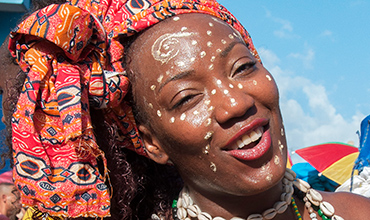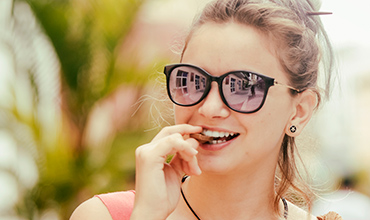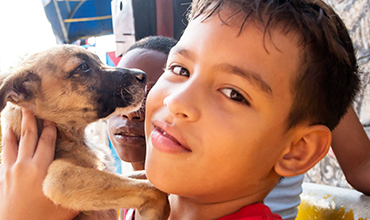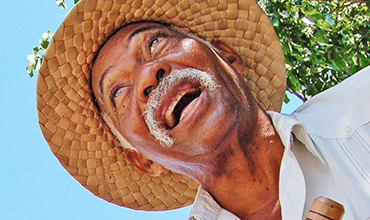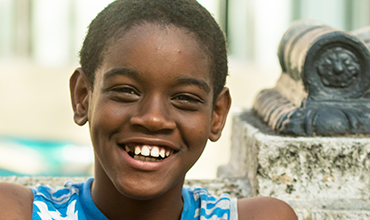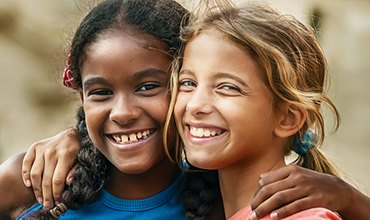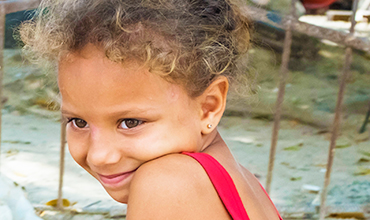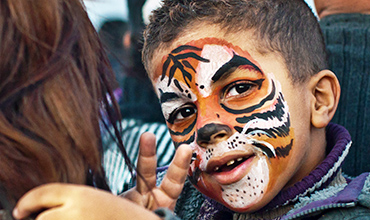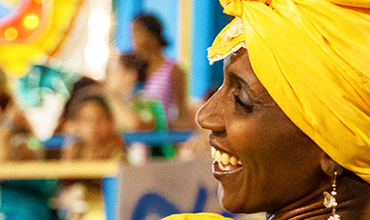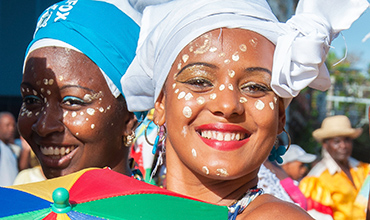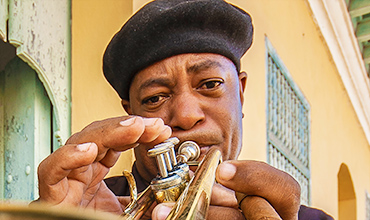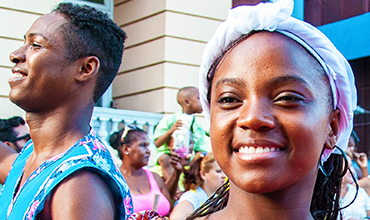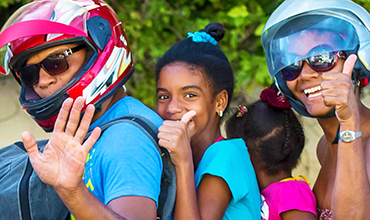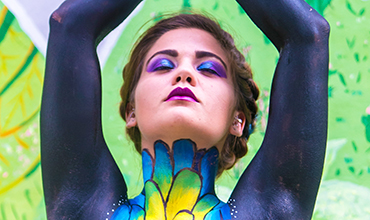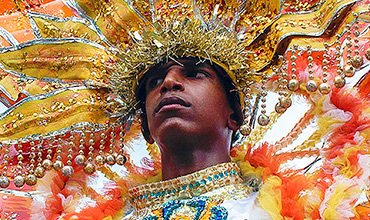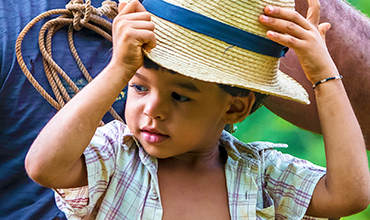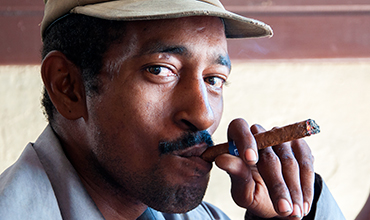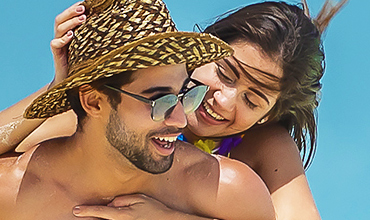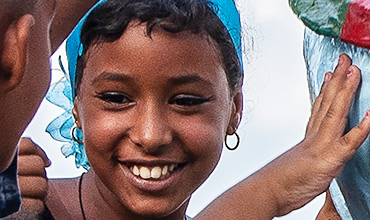Weekend in Havana review
The Cuban people are very friendly. They are easy to mingle with and make one feel quite at home. The country is very nice as well, however the ... Full review
Ray Menhorn
Duluth, Georgia
Tom Harris in Cuba review
Kubo was a fascinating visit for me. I did not realize how significant of a colonial city. It was in terms of size and strategic importance. I knew ... Full review
Thomas Harris
Charlotte, North Carolina
Weekend in Havana review
Fantastic trip! The Cuban people and Cuban culture are amazing. The schedule for the weekend in Havana was perfect. I never felt rushed and my guide, Norberto Hernandez, ... Full review
Steven Morgan
Canton, Georgia
Culture Across Cuba 7 Days review
It was great to experience Cuba and its people on this trip. The country is very safe and welcoming. The people are warm and happy to connect with ... Full review
Megan O’Bryan
Rocky River, Ohio
Philip Levine-February 2025 review
There is such beauty in the people, it’s architecture and so much to learn that I didn’t know
Nancy Myers
New York, New York
Culture Across Cuba 7 Days review
Beautiful and unique!
Aliana Sindram
Lewisville, North Carolina
Weekend in Havana review
Really enjoyed our brief visit in Havana. It met or exceeded all expectations.
Jo Ann Schwartz
Los Altos, California
Betty Jensen Cuba review
Eye-opening! Warm and friendly people.
Cynthia (cindy) Taylor
Macon, Georgia
Betty Jensen Cuba review
The art and music of Cuba are major attractions. It is sad to see so many of the old buildings in disrepair, so many are worthy of international ... Full review
Nancy Thomson
Port St Joe, Florida
Rodney Higgs in Cuba review
As a US citizen, I have always been intrigued with Cuba, the mystery, the history, culture and people. When the pathway to travel to Cuba was established under ... Full review
Rodney Higgs
Mechanicsville, Virginia
John Doty and friends Cuba review
Loved everything
Raymond Lechner
Chicago, Illinois
Havana extravaganza review
We absolutely loved Cuba! It was so unique compared to other places we have visited and the people were all so friendly! We were amazed by what a ... Full review
Marci Freeman
Gulf Breeze, Florida
Culture Across Cuba 10 Days review
They are very proud people with a rich art and music culture. I wasn’t expecting to experience as much as we did, and had a fantastic trip. ... Full review
Amy Pappas
Cleveland, Ohio
Weekend in Havana review
Cuba was fascinating! The blend of cultures have made such vibrant architecture, art and food. The people were lovely. We have never felt more welcome.
Debra Barry
Kettle Falls, Washington
Weekend in Havana review
My trip was fabulous! You should have Pedro as your guide, he was so knowledgeable. Everything was extremely well coordinated. Highly recommend Cuba Explorer and Pedro as your ... Full review
Gary Cope
Firestone, Colorado
Wild Cuba adventure review
We very much enjoyed meeting the individuals we met and had a chance to talk to on our 6 days in Cuba. We don't speak enough Spanish to converse, ... Full review
Mary Loe
Oswego, New York
Cuban Health system review
The trip was great. Everything I expected and more. Our guide and driver were fabulous. We saw a lot of great places, went to some interesting and educational ... Full review
Niva Lubin -Johnson
Chicago, Illinois
Old Havana and the sea review
Could not say enough about the kindness and generosity of the Cuban people. The country is absolutely beautiful however, it is worn down and decrepit. The hotels we ... Full review
Christine Parr
Delano, Minnesota
Cuba Discovery review
This was the trip of a lifetime. Yes, there is horrible poverty but the culture, food, history, architehture, sites and sounds of Cuba were absolutely incredible. The people ... Full review
Susan Ehrlich
Chicago, Illinois
Jessica Maffitt in Cuba review
I have never taken a customized tour before, and the experience was incredible. We could focus on the activities that most interested us, instead of a generic tour ... Full review
Jessica Maffitt
Des Moines, Iowa
Kimberley and family in Cuba review
We had an incredible experience. Our tour guide Mariana and our driver were incredibly knowledgeable and truly seem to care about not just our experience but our well-being. ... Full review
Kimberley Jones
Key West, Florida
John Doty and friends Cuba review
We had such a good time we are coming back!
John Doty
Chicago, Illinois
Weekend in Havana review
Our impression of Havana, the reception we received, and the quality of the accommodations provided were all very positve. This was our second visit to Cuba--for a special ... Full review
Martin Gleason
Washington, District of Columbia
Western Cuba culture review
Loved Cuba's dynamic culture, layers of history and welcoming people!
Frances (franci) Phelan
Albuquerque, New Mexico
Culture Across Cuba 7 Days review
Cuba is a unique place - there is no other place like it. The food, art, natural habitats and the people are beautiful and complex.
Holly Eskridge
Charlotte, North Carolina
Diane Dasilva in Cuba review
I loved Cuba and what truly made it incredible was the warmth and kindness of the Cuban people. In regards to culture, I've been to about 30 countries and ... Full review
Diane Dasilva
Parsippany, New Jersey
Weekend in Havana review
I had done a lot of research in advance of arriving to prepare for my trip to Havana. The people and culture were welcoming and if one takes ... Full review
Sandy Elizabeth Benitez
Manvel, Texas
Joseph Garcia in Cuba review
Cuba is an awesome place to visit. Even though the country is poor, the people are friendly and treated us very well. The music, food , cigars and 'vintage' ... Full review
Joseph Garcia
Bonita, California
Betty Jensen Cuba review
I saw so much potential. Because of the continued financial crisis, Cubans are just trying to survive. Is there a way out of the deprivation? The Revolution, the ... Full review
Janis Brown
Tallahassee, Florida
Havana extravaganza review
Our trip to Havana was amazing. The itinerary had so many highlights that made our trip extraordinary, and our Cuban guide, Jorge was outstanding. He was kind, knowledgeable, ... Full review
Jacqueline Northard
Hastings, Minnesota
Weekend in Havana review
Cuba is a beautiful place with wonderful nature, great architecture and friendly people. Due to U.S. embargos a lot of things are not available. The embargo makes ... Full review
Philip Busch
Flagler Beach, Florida
Yekaterina in Cuba review
Cuba is a beautiful place with kind people and wonderful culture. There is music and art everywhere. The only siggestion is to make a stronger recommendation for visiting ... Full review
Yekaterina Axelrod
Carmichael, California
Music Exchange Ena-Beaver Country Day School review
I've been leading groups traveling to Cuba for the last 12 years and the Cuban people are friendly, welcoming, flexible, and easy going. They are always eager to connect ... Full review
Ana Gisela Norgaard
Brookline, Massachusetts
Western Cuba review
Dear Cubaexplorer, Thanks for making my dream come true… For many years I have been wanting to visit Cuba, the History the People and Culture has always fascinated ... Full review
Dax Dunn
Davie, Florida
Philip Levine-February 2025 review
This is my eighth year bringing groups to Cuba with Cuba Explorer - and it will not be my last. I expect the best and I get it. ... Full review
Philip Levine
10014, New York
Wild Cuba adventure review
My impression of the people of Cuba is nothing but positive. They are well educated and extremely friendly. It is sad that so many are just getting by ... Full review
Jack Kostelec
Ellicott City, Maryland
Weekend in Havana review
Beautiful country with tremendous history and so much promise.
Norma Horwitz
Akron, Ohio
Betty Jensen Cuba review
Love the people and culture. Sad about their living conditions
Barbara Saner
Flower Mound, Texas
Philip Levine-February 2025 review
The people are wonderful. Creative, entrepreneurial, kind. The culture is fascinating and complex. The city of Havana is a wreck other than a few spots. Signs of how ... Full review
Ian Leavesley
Eliot, Maine
Western Cuba culture review
Norbert and Yuri were what I liked best about our tour. Norbert was extremely knowledgeable, patient, friendly, and made sure we had everything we needed. Yuri was quick ... Full review
Jeff Beatty
Orem, Utah
Bryan Barrett in Cuba review
Visiting Cuba over Christmas under the “Support for the Cuban People” category was truly a once‑in‑a‑lifetime experience, and one I will never forget. Since returning ... Full review
Bryan Barrett
Titusville, Florida
Philip Levine-February 2025 review
Cuba is a naturally beautiful country, the people are friendly and welcoming and the culture diverse & unique.
Patricia Murphy
Norfolk, Virginia
Havana extravaganza review
Beautiful country. Wonderful people eager to connect. Dysfunctional political system. Occasionally tour guides and taxi drivers point out specific buildings, dates etc. Too much info. Jorge at the ... Full review
Richard Manke
Hastings, Minnesota
Chaminade school to Cuba review
Honestly, I can't think of anything! This is the second summer that I’ve led a school trip to Cuba with Cuba Explorer: last summer to Havana, Bay ... Full review
Robert Barnidge
University City, Missouri
Weekend in Havana review
The trip was amazing, and Evia was great! We thoroughly enjoyed our time in Cuba.
Jake Tracy
Seattle, Washington
Betty Jensen Cuba review
Beautiful land of contrasts.This is the 5th time I have used Cuba Explorer. They have always delivered a good service. This was perhaps the smoothest trip as ... Full review
Betty Jensen
Tallahassee, Florida
Cuban Health system review
Amazing trip! Atila, our guide, was amazing! He not only showed and told us so much about Cuba, but really allowed us to experience it! The culture is ... Full review
Jessica Guzman
Cicero, Illinois
Marina Rangelova’s to Cuba review
Cuba left a deep impression on me. The people were warm, genuine, and welcoming in a way that felt effortless and real. There’s a palpable pride in ... Full review
Marina Rangelova
Dallas, Texas
Wild Cuba adventure review
I enjoyed the experience. The Cuban people were friendly and inviting.
Resa Remus-Stariha
Lasalle, Illinois
Weekend in Havana review
Cuba is a beautiful country, with lovely and welcoming people. Everyone was so kind, and the culture is vibrant.
Shannon Barry
Seattle, Washington
